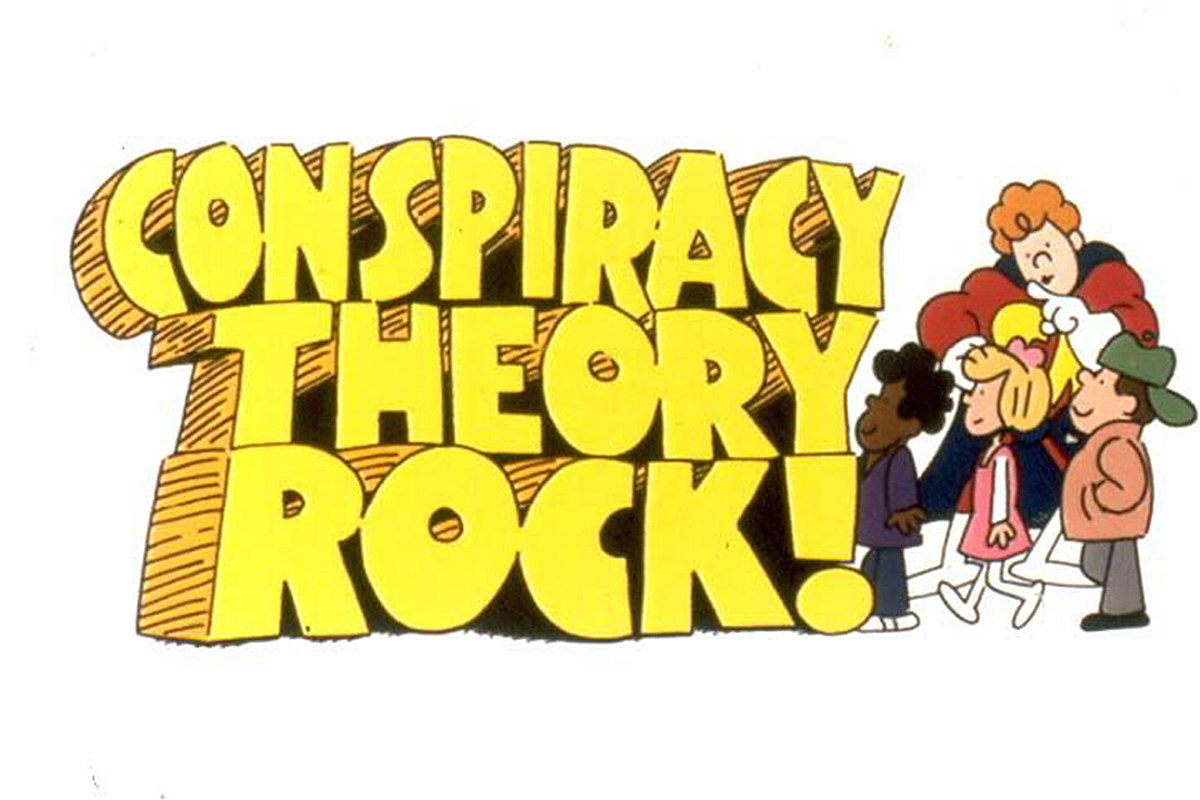Classic Rock
When ‘Conspiracy Theory Rock’ Was Banned From ‘SNL’
Saturday Night Live’s reputation as a vehicle for biting political satire is overblown, especially by the show itself. Originally emerging from post-Watergate American counterculture comedy, SNL was quickly revealed as more revolutionary about the medium of television than about politics, the show’s performance-driven parade of characters and recurring bits more likely to kick against established TV norms than political ones. Still, there are times when a singularly biting satirical piece breaks through SNL and founding producer Lorne Michaels’ more middle-of-the-road sensibilities.
One such sketch titled “Conspiracy Theory Rock” aired on the March 14, 1998, episode of Saturday Night Live, hosted by Julianne Moore and featuring musical guests the Backstreet Boys. The piece in question featured neither of the night’s guests or any of the cast but was instead the work of writer Robert Smigel, whose tenure on the show saw him setting up something of a one-man shop in the form of his animated “TV Funhouse” segments. A grab-bag of conceits alternately or concurrently tasteless and overtly satirical, the animated pieces gave the acerbic Smigel free reign to push boundaries and generally poke fun at everything from current events to corporate hypocrisy to even Saturday Night Live itself. (The open and close of every “TV Funhouse” sees an animated Michaels furiously chasing a cartoon pup whose mischievous ripping of the SNL screen reveals the “TV Funhouse” logo underneath, the cartoon Michaels imperiously demanding, “Come back here with my show!”)
Smigel’s smart-aleck reputation reached its infamous peak on the Moore episode (at least until he and his Late Show With Stephen Colbert crew were arrested for breaching Capitol security in 2022 in pursuit of lawmakers who’d talk to his most famous creation, the puppet instigator Triumph the Insult Comic Dog). “Conspiracy Theory Rock” expertly aped the style of the beloved ’70s Schoolhouse Rock animated TV shorts, this time with a disheveled narrator (suspiciously similar to recently apprehended anti-corporate terrorist Ted Kaczynski) explicitly explaining the insidious connection between a few mega-corporations (including General Electric, then owners of SNL network NBC) and everything from media manipulation and FCC deregulation to corporate welfare and the then-erupting PCB scandal, in which political and corporate influence was shown to be behind cancer-causing pollution.
Taking the comfortably upbeat rhythms of those Schoolhouse Rock shorts and applying them to a typically snotty takedown of his ostensible (and very powerful) corporate overlords was prime Smigel, with the narrator running viewers through the top-down management of news stories on corporate-owned news programming. The singing narrator mentions specific court cases against media-owning companies that he notes never seemed to make the nightly news, bringing up General Electric’s defective bolts scandal and controversial association with nuclear weapons manufacture, and CBS owner Westinghouse’s multiple fraud trials. “That’s a footnote by the way,” notes the narrator in his folksy warble as the NBC peacock points to the citations to actual news stories. “A footnote protects you from folks that doubt what you say.”
In truth, Smigel was and was not protected in his cheekily pointed animated broadside. In the SNL oral history Live From New York, NBC Vice President for Late Night Rick Ludwin notes how he dutifully sent Smigel’s cartoon up the corporate ladder, as is common when something on SNL potentially might tickle the network’s interests. Surprisingly, the piece was approved by NBC, with “Conspiracy Rock” slotted into that week’s show — even if Michaels scheduled it later in the lineup, purportedly because he imagined NBC President Wright might have gone to bed by then.
Smigel, anticipating resistance, has his narrator’s anti-corporate ditty interrupted by a “Please Stand By” technical interruption just when the song explicitly notes how SNL viewers are supporting these companies’ nefarious actions every time they purchase a sponsor’s product. Plus, the whole possibly-the-Unabomber conceit provides some cover, as the unkept figure at one point mentions the voices in his head and spins a tale of General Electric making the bullets that killed JFK. (“My uncle Larry,” reads the footnote, in contrast to the actual citations related to the mentions of real-world suppressed news.) Still, “Conspiracy Theory Rock” ran as intended, its two-plus-minute takedown of how this “Media-Opoly” ensures that the profit-protecting fix is in receiving a muted reception from the audibly taken-aback studio audience.
But what’s a good “Conspiracy Rock” without an actual conspiracy? When it came time for Season 23 to go into reruns and syndication, suddenly, Smigel’s short was nowhere to be found. Michaels, in an interview, explained that the time was needed for a second Backstreet Boys number, so “Conspiracy Rock” didn’t make the cut. Fair enough — factors ranging from music rights and syndication’s shorter run times necessitate a snip here and there. That said, Michaels also noted that he thought Smigel’s piece “wasn’t funny,” a sentiment echoed by then NBC President (and former General Electric executive) Robert Wright who, in Live From New York, explains that Smigel’s scathing attack on his company was “just kind of a shot at GE without any point to it.” The fact that the short ends with the narrator complaining about cast member Norm Macdonald’s forced departure (reportedly due to the “Weekend Update” anchor’s repeated jabs at pal of NBC exec Don Ohlmeyer, O.J. Simpson) can’t be ignored either.
Smigel has done funnier stuff — “Conspiracy Rock,” for all its boldness and duly cited revelations about corporate media manipulation, isn’t exactly a laugh riot. Looking back to Tim Robbins’ 1992 political satire Bob Roberts, we can see an anticipatory example of just this sort of kerfuffle, as onetime SNL host Robbins depicts a movie star host (of a suspiciously SNL-style late-night show called Cutting Edge Live) pitching an almost identical premise about corporate control of media and being shot down for being more strident than funny by the supposedly radical show writers. (Robbins unsuccessfully tried to get a similar idea off the ground during his one 1992 hosting gig.)
But Saturday Night Live and NBC brass’ “just not funny” explanations ring false in the face of the fact that there’s no shortage of unfunny failed sketches on any given episode that might get the axe. Smigel, who continued to contribute to Saturday Night Live here and there to Season 44, wasn’t happy about his sketch’s excision from reruns. The piece is included in the NBC-produced Best of TV Funhouse DVD, released in 2008, leaving the censorship conspiracy a little muddy. (“Conspiracy Theory Rock,” however, is nowhere to be found on the Peacock version of the original episode, even though those Backstreet Boys performances Michaels championed have been cut due to music rights.) Debunking site Snopes even chimed in on the issue with a 2015 article running through the timeline of events and concluding that, while Smigel’s admirably snotty act of animated defiance hasn’t exactly been scrubbed from the airwaves as conspiracy types insist, NBC’s continued excuses for “Conspiracy Theory Rock”’s media obscurity remain suspect after all these years.

